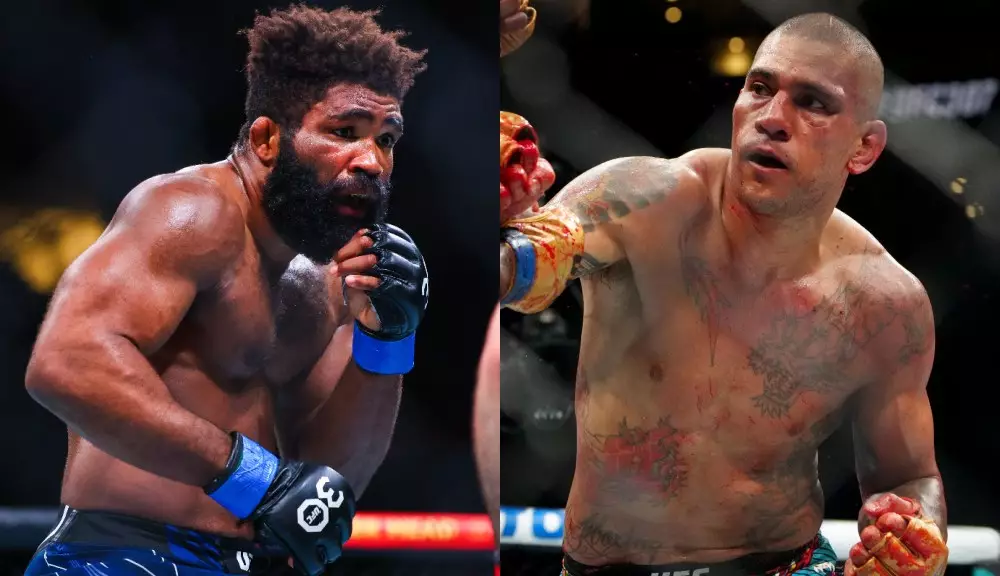Chris Curtis, a seasoned combatant in the world of mixed martial arts (MMA), is a name that resonates within the UFC community. With a professional record of 31 wins and 11 losses, along with 5 victories and 3 defeats in the UFC, Curtis has built a reputation as a resilient and adaptable fighter. His willingness to step into the octagon against a diverse array of opponents demonstrates a commitment to the sport that many fighters admire. However, Curtis has reached a unique point in his career where some fights, including one against former UFC middleweight champion Alex Pereira, are simply off the table.
Curtis openly acknowledges that he has refused to fight only one opponent during his UFC tenure: Alex Pereira, who currently holds the title of UFC light heavyweight champion. The proposition of challenging Pereira came during a pivotal moment in the latter’s rise through the middleweight ranks. At that stage in his career, Curtis felt that he did not have the necessary preparation to take on such a formidable competitor. He recalls the moment he was offered the fight as saying, “F*ck no. I’m not fighting him on like kind of short notice.” In making this decision, Curtis recognized that some matchups require a full training camp and a strategic approach, which was simply not available in this instance.
Coming back from an injury layoff, Curtis is set to face Roman Kopylov at UFC Fight Night 249. The significance of this match cannot be understated, as it will mark his return to the octagon after being sidelined due to a broken foot. The importance of health and preparation in combat sports cannot be overstated, and Curtis exhibits an understanding that not every opportunity is worth pursuing. His willingness to delay a fight for the right conditions showcases a level of self-awareness and strategy that is often overlooked in the competitive nature of the sport.
Curtis’s observations about his fellow fighters add another layer to his personality as an athlete. His admiration for Kevin Holland, another prominent name in the UFC, demonstrates his respect for his peers and the community he is part of. Curtis has expressed a desire to engage in matches that are not just about competition but about enjoyment and camaraderie among fighters. He states, “I just want to have fun fights,” which encapsulates his approach to the sport. This attitude fosters a sense of respect and sportsmanship that is essential not only within the octagon but also among fans and the broader MMA community.
The mental aspect of preparing for fights is often just as important as the physical training. Curtis has withheld from engaging with Pereira, not just because of the daunting challenge presented by the fighter but also due to a strategic mind that values long-term growth over immediate competition. The mental decision to turn down fights is rarely discussed, yet Curtis provides insight into this by highlighting how his initial success in the UFC has built him a bank of goodwill with the organization, allowing him to be more selective in his matchups.
Moreover, Curtis’s insight into the immense size and power of Pereira reminds fans of the physical realities of the sport. Keith Thurman once mentioned that size matters in boxing, and the same applies to MMA. Recognizing the differences in physical attributes can play a significant role in one’s success, and Curtis’s acknowledgment of these realities places him in a field of fighters who are not only strong but also cerebral about the fights they choose.
Chris Curtis exemplifies a modern MMA fighter who understands the value of smart decision-making in a profession that often glorifies sheer strength and aggression. His encounters, preferences, and respect for the sport elucidate a fighter’s journey that is not merely about wins and losses, but about finding fulfillment and purpose within the art of fighting. As he prepares to return against Kopylov, fans are eager to witness not just his skills but the philosophical approach he brings into the octagon. Curtis is not merely a competitor; he is a strategist, a sportsman, and a fighter who knows when to step back and when to engage, ultimately enriching the world of mixed martial arts.

